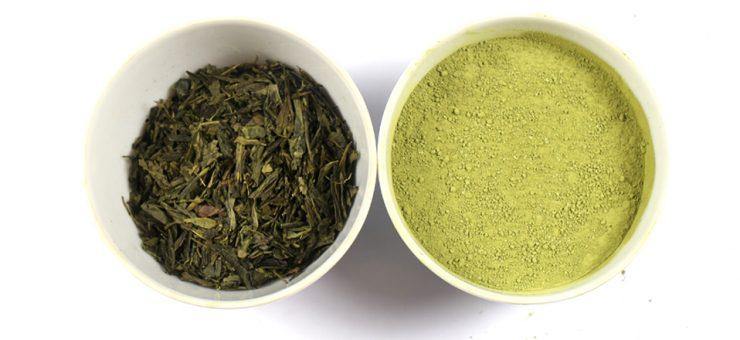In the past few years, matcha and green tea have become increasingly popular not only as a yummy drink, but also as a great ingredient for skin care.
The two are a bit of a square vs. rectangle situation - matcha is green tea, but not all green tea is matcha. So we did some digging for you. Here are some of the differences and similarities of matcha and green tea below!
Matcha vs. Green Tea. What is the difference?
Matcha and green tea are derived from the same origin plant - Camellia Sinensis. You've probably noticed that while green tea generally comes in the form of fine, chopped up leaves in a bag, matcha comes in a really fine, soft powder form. Matcha is made up of 100% of green tea leaves that have been ground down even further into that powder, which makes it much more concentrated. When drinking matcha, you also are consuming the entire tea leaf.
In addition, standard green tea is left in the sun for long periods of time during processing, which makes the production time much longer. With matcha, it is kept undercover and out of the light to increase levels of chlorophyll and amino acid in its leaves. Both have a natural, earthy flavor - but you'll notice matcha is much richer and smoother.
Benefits of Matcha and Green Tea
Green tea and matcha tea share very similar health benefits, however Matcha has 10 times the nutritional value and up to 137 times the antioxidants, which are known to help fight free radicals. How incredible is that! Matcha is full of antioxidants which are known to help fight free radicals. Matcha also has 130 times more calcium and 172 times the amount of protein per serving! Now you know why we refer to it as "jam-packed." Matcha can also improve recovery after you exercise.
Caffeine in Matcha
In addition to the above, matcha tea and green tea slightly differ in caffeine content. Green tea contains about a quarter of the caffeine levels found in coffee. Matcha on the other hand contains slightly more caffeine, since it is more concentrated. It amounts to around half the amount per cup in vs. your cup of coffee.
So, now you know! Try our Matcha Superfood Blend to see the difference for yourself.

